

Appeal for ministers of tourism not to be by-standers in assault on travel industry
The Belgium terrorist attack brings Presidents and Heads of States together as they send messages of condolence to the Kingdom of Belgium
Another sad day for the Community of Nations as the world hears of more bomb blasts now labeled Acts of Terror. Below is a message sent by President James Michel of the Seychelles to the Kingdom of Belgium. Similar words were echoed by President Obama of the USA and Prime Minister Cameron of the UK as they made statements to the press in the hours following the Belgium bomb attacks.
Only last week I posted the message from Egypt announcing the closure of some dive centres, decisions that was set to impact on the tourism industry of Egypt and on the country’s economy. The People of Egypt will now suffer because tourism remains the most vulnerable industry and Acts of Terror or bomb attacks creates instability and would-be tourists stay at home.
Just last week I appealed for Ministers of Tourism not to be by-standers in this assault of their industry. The Secretary General of the UNWTO, Mr Taleb Rifai earlier this year rallied some 8o Tourism Ministers and other high officials for a meeting in Madrid to discuss exactly the question of tourism and instability.
The Madrid meeting was the result of an appeal I had personally made to Mr Taleb Rifai.
In Madrid we had all agreed that we needed the main press houses to understand our appeal, but every assault on Member States of UNWTO we continue to see headlines depicting yet “another star is born” . The world needs more than ever before to see political leaders sit with the press to discuss the right to information versus the right to life and economic stability.
I offered Seychelles as the venue for such a meeting under the auspices of the UNWTO and my offer stands today as it did late last year after the Paris bombings.
Alain St.Ange
Minister of Tourism and Culture
Republic of Seychelles

2050 No-Carbon-Aviation “Moon-shot” for Green Growth
Brussels / Hawaii / Seychelles – In a Keynote address to the CAPA Aviation Summit, Professor Geoffrey Lipman,President of ICTP (International Coalition of Tourism Partners), focused on what he called “the new Global Sustainability Agenda”, the existential nature of Climate Change and a long-term vision of no-carbon aviation.
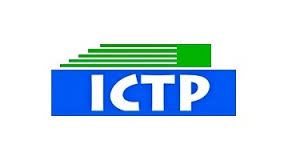 He referenced connected 2015 Heads of State Summits on Development Financing, Sustainable Development Goals (SDG) and Climate, as well as the 2016 Habitat for Humanity meeting, as a new, UN driven, platform for Green Growth. He noted the 2030 date for achievement of the SDG’s with 17 Goals, 169 Targets and 304 indicators on “The Future We Want”, with 2050 as the ultimate deadline for Climate stabilization.
He referenced connected 2015 Heads of State Summits on Development Financing, Sustainable Development Goals (SDG) and Climate, as well as the 2016 Habitat for Humanity meeting, as a new, UN driven, platform for Green Growth. He noted the 2030 date for achievement of the SDG’s with 17 Goals, 169 Targets and 304 indicators on “The Future We Want”, with 2050 as the ultimate deadline for Climate stabilization.
Lipman said that the Paris Cop 21 meeting had seen a landmark recognition by virtually every State to work together to eliminate all greenhouse gases, as well as a new realization that a 2 degrees’ temperature rise was a maximum permissible increase for tolerable lifestyles. National commitments would be reviewed every 5 years, with a view to ratcheting them to higher levels and a figure of less than 1.5 degrees increasingly emerging as a sustainability goal.
Aviation will be integrated into this framework by an agreement at the end of 2016 through a parallel track in the International Civil Aviation Organization (ICAO) and he underscored the responsibility of ICAO to at least meet and ideally surpass the Paris directions. It’s “four pillar strategy”, developed with full engagement of the industry has been established to do that – with a combination of technology, infrastructure, operations and market based, carbon reduction measures.
Lipman said that the current ICAO approach has been carefully developed, with the industry and in synch with the Paris UNFCCC process. Despite some fundamental institutional differences around “differentiated commitments” it is moving forward positively – it is an essential step in establishing a global base to control greenhouse gases from the sector.
The core challenge is that while the Aviation consensus has been building, over the past decade, the climate change goal posts have moved significantly. The life threatening impacts are more widely accepted; ice caps are melting, oceans are warming and greenhouse gases are growing – all at unsustainable levels. There are more extreme storms, floods, fires, droughts, air pollution and migration. In short we face an existential threat in a matter of decades, if we fail to act coherently now.
Against this backdrop the current aviation goals, show a 2050 reduction of carbon to 50% of historic levels, while encompassing continuous high growth and very positive socio- economic development. While this is a major control on carbon growth rates it will still leave significant annual carbon output. Aviation – unlike almost all other sectors – has limited projected alternative fuel potential, so its carbon output, relative to other sectors is escalating. This has been estimated to account for between 10-20% of total 2050 annual global carbon output, compared to 2-3% today – without covering other greenhouse gases. Our sector will be increasingly challenged by this unless we adopt visionary new strategies and focus resources to support this.
Lipman said that we need a 2050 No-Carbon-Aviation “Moon-shot” – accelerating the search for alternative aviation fuels and propulsion. Investment in substitutes for fossil fuel is increasing dramatically – from public research and incentives, to industry re-allocation of resources and impact investment.
The new Bill Gates led “Breakthrough Energy Coalition” is raising billions of dollars for this massive refocus on radical technology innovation. Air Transport fuel must be a priority. It will need new coalitions, organization, metrics and financing. On this later point he stressed that any proceeds from market mechanisms, climate taxes or passenger levies on the sector must form a substantial “Moon-shot” funding base, that could be matched from other breakthrough energy sources.
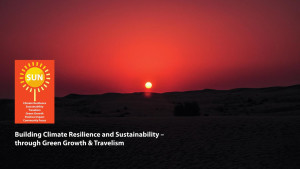 Finally, he called on the entire Travelism sector, to embrace transformation, stressing the fact that we have been prioritized by the G20 and the UN system as a vital employment, trade and development agent, He pledged the support of SUN – a network of prefabricated, solar powered, web connected support centres – as an emerging tool for climate resilience and SDG implementation.
Finally, he called on the entire Travelism sector, to embrace transformation, stressing the fact that we have been prioritized by the G20 and the UN system as a vital employment, trade and development agent, He pledged the support of SUN – a network of prefabricated, solar powered, web connected support centres – as an emerging tool for climate resilience and SDG implementation.
Lipman added that Aviation climate resilience would become a key element of its Green Growth mission.
For more information: www.thesunprogram.com and [email protected]
ICTP: www.ictp.travel
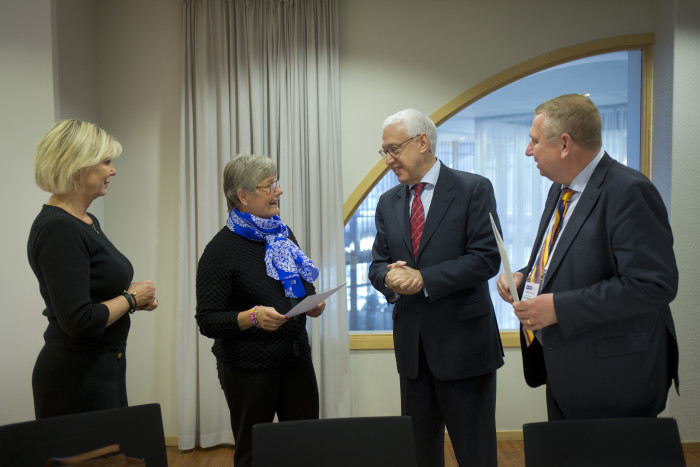
Swedish private sector commits to the UNWTO Global Code of Ethics for Tourism
Visita and Svensk Turism AB have become the latest private sector signatories to the UNWTO Global Code of Ethics. The signature of the commitment to the Code took place on the occasion of Sweden’s Hospitality Industry Congress, held in Gothenburg (17 March 2016).
By adhering to the Code, the private sector signatories commit to respect its principles; to promote the Code among its partners, providers, staff and clients, making sure that its provisions are known and respected as far and wide as possible; and to report to the World Committee on Tourism Ethics on the measures taken to implement the Code.
As stated by Márcio Favilla, UNWTO Executive Director for Competitiveness, External Relations and Partnerships, on the occasion of the signature “tourism’s exponential growth in recent years comes with increased responsibility for all and this is why today’s commitment is so important; the UNWTO Global Code of Ethics constitutes the most efficient tool to channel corporate responsibility commitments towards our society and communities.”
“Travel to Sweden is becoming more and more popular among tourists from Europe as well as for those traveling from long-haul markets such as Japan, China, India, Russia and the USA. Cooperation with UNWTO highlights Sweden’s commitment to being a responsible, sustainable and attractive destination”, said Maud Olofsson President of Visita. Eva Östling, CEO of Visita, added that “tourism is one of Sweden’s most important industries with an export value of 97 billion SEK. But the potential is much higher. The goal is to double this in ten years”.
Magnus Nilsson, President of Svenk Turism said “now we’ll insert the UNWTO Global Code of Ethics for Tourism in the Swedish tourist industry’s national strategy. With a focus on sustainability, we will work towards ensuring that by 2020 Sweden is the natural destination for the global traveler”.
The UNWTO Global Code of Ethics for Tourism is a comprehensive set of principles designed to guide key-players in tourism development. Addressed to governments, the travel industry, communities and tourists alike, it aims to help maximise the sector’s benefits while minimising its potentially negative impact on the environment, cultural heritage and societies across the globe. Adopted in 1999 by the General Assembly of the World Tourism Organization it was acknowledged by the United Nations in 2001.
The relevance that the private sector can have in promoting a more responsible tourism sector, lead UNWTO to develop since 2011 the Private Sector Commitment to the Code. As of January 2016, 451companies and associations from 64 countries –from airlines and hotels, to tour operators and associations– have joined the commitment to uphold ethical standards and ensure the implementation of the Code in their operations.
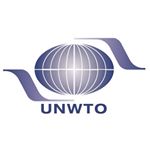
UNWTO projects a positive 2016 for tourism in Greece
UNWTO Secretary-General Taleb Rifai has expressed the confidence of the Organization in the continued growth of the tourism sector in Greece. In 2015, international tourist arrivals to Greece grew by 7% to reach 23.6 million, while exports generated by the sector increased by 6% to euro 14.2 billion.
Meeting Minister of Tourism of Greece Elena Kountoura at the side-lines of ITB to discuss the situation and prospects of tourism in Europe and Greece, Mr Rifai said “we have no doubt that Greece will maintain a powerful image worldwide as a major tourism destination and that the country will consolidate its growth in 2016, as shown by booking trends”.
Ms. Kountoura said “the Aegean islands are already showing a positive trend in bookings and are ready to welcome an increased number of tourists for the current season”. The diversification of the touristic offer, the development of new destinations and the opening of high-end accommodation facilities and services are some of the measures taken by the Greek government to enhance tourism, as highlighted by the Minister of Tourism of Greece in the meeting.
“Meeting with leading tour operators at ITB, we have received very positive feedback from the German travel market, which has confirmed the increased demand in bookings for Greece”, added Ms. Kountoura.
This news is timely for Greece as the country is advancing implementation of its new tourism policy framework, launched in 2015 to enhance international tourism.

Public-private partnerships key to the success of Silk Road Tourism
The 6th Silk Road Ministers Meeting held at ITB Berlin on 9 March 2016 focused on the role of public and private sector partnerships (PPPs) in the development of tourism along the Silk Road. Participants discussed how PPPs can advance the issues of infrastructure, product development and marketing.
Addressing the meeting, UNWTO Secretary-General said “governments must lead and direct tourism policies, but the engine behind tourism development is the private sector, and thus one cannot work without the other”.
The role of PPPs was stressed by the President and CEO of the World Travel and Tourism Council (WTTC), David Scowsill, who recalled the need to create “mechanisms to promote the consultation of the private sector in decision making and legislation”.
Ministers and high level officials from Bulgaria, Bangladesh, Kyrgyzstan, the Czech Republic, Cambodia and Iran shared their views and experiences in this area, while Kazakhstan presented the opportunities to promote the Silk Road arising from the upcoming Expo Astana 2017. Other major international events highlighted as key to forging partnerships between public and private stakeholders were the Silk Road Conference on Nomadic Tourism and Sustainable Cities (Ulaanbaatar, Mongolia, 13-15 October 2016) and the Global Tourism Economy Forum 2016 (Macau, China, 14-16 October 2016).
At the meeting, UNWTO launched the Silk Road Action Plan for 2016/2017. The Plan, which includes priority actions in 1) marketing and promotion; 2) capacity building and 3) travel facilitation, will be further discussed at the 6th UNWTO Silk Road Task Force Meeting to be held in Urmia, Iran on 22-25 April 2016.
UNWTO Affiliate Member TripAdvisor presented the TripAdvisor 2016 Travel Trends for the Silk Road. The research based on a survey of 10,678 travellers shows that 8 in 10 travellers have heard of the Silk Road and that the top ten countries associated with the Silk Road are China, Mongolia, Kazakhstan, Uzbekistan, Iran, Turkey, Turkmenistan, Kyrgyzstan, Tajikistan and Azerbaijan. The research, conducted in collaboration with UNWTO, also found that travellers would be 41% more likely to travel to the Silk Road if they could obtain a single Silk Road visa.
The UNWTO Silk Road Programme is a collaborative initiative designed to enhance sustainable tourism development along the historic Silk Road routes. It aims to maximize the benefits of tourism development for local Silk Road communities, while stimulating investment and promoting the conservation of the route’s natural and cultural heritage. Additionally, it is working to foster greater cooperation between Silk Road countries and regions, with the established aim of creating a seamless and memorable Silk Road travel experience.
Currently the Silk Road Programme engages 33 UNWTO Members States, UN agencies such as UNESCO and UNCTAD as well as an extensive network of private sector stakeholders.
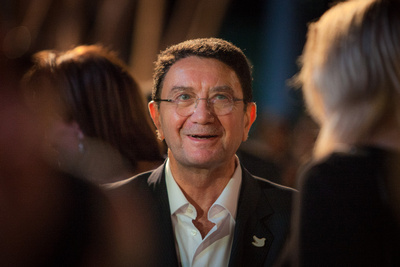
UNWTO Secretary General´s Speech at the Opening Ceremony of ITB Berlin 2016
Mr. Michael Müller, Governing Mayor of Berlin Ms. Iris Gleicke, State Secretary, Federal Ministry of Economic Affairs and Energy Mr Moosa Zameer, Minister of Tourism of the Maldives Dr. Christian Göke, CEO, Messe Berlin GmbH Dr. Michael Frenzel, President of the German Tourism Industry Federation (BTW) and Chairman of the World Travel and Tourism Council (WTTC) Ladies and gentlemen, dear friends, Guten Abend.
Wilkommen in Berlin, Wilkommen zur ITB. It is my great pleasure to address you once again at the opening of ITB. On behalf of the World Tourism Organization, allow me to start by congratulating ITB on the occasion of its 50th anniversary and by thanking ITB for the important contribution it has made for over half a century to the development of the tourism sector. When it was first launched in 1966, this pioneering event hosted 9 exhibitors from 5 countries and was attended by 250 trade visitors. Today, over 100.000 trade visitors from more than 180 countries gather in Berlin for what has become a leading global showcase for tourism.
UNWTO is a very pround partner of ITB and we look forward continuing working with you for the next 50 year. Allow me also to welcome the Maldives as this year´s Official Partner Country of ITB. The islands´ natural beauty, white beaches and abundant marine life attract visitors from all over the world, and have made tourism a lifeblood for the Maldivian economy. Dear friends, It is indeed a great privilege to address you another year and set the scene of world tourism and the challenges facing us.
We live in challenging times, yet tourism continues to bring us hope. Despite a slow and uneven global economic recovery, despite growing geopolitical challenges, health scares and security concerns, 2015 was another record year for international tourism. International tourist arrivals grew by 4.4% to reach 1.2 billion (1.184 million), meaning 50 million more tourists travelled the world in 2015 than in 2014. Looking ahead, UNWTO is confident that despite increased volatility and uncertainty, 2016 will bring another year of growth to our sector, with an estimated increase of 4%. Dear friends, The robust performance of tourism is contributing to economic growth, job creation and better lives in many parts of the world, yet to ensure that this continues to be the case we must address four key priorities: 1. Promoting safe and seamless travel Global challenges demand global solutions and tourism development greatly depends upon our collective capacity to promote safe, secure and seamless travel.
As has been highlighted too often in recent times, safety and security are priorities for all and we need to ensure tourism is fully integrated into national and international security agendas. On the other hand, the security challenges that we face today should not prompt us to build new walls. On the contrary, enhancing security and enabling more seamless travel should always go hand-in-hand. 2. Enhancing the role of technology and innovation in tourism We are living through what many have called the 4th industrial revolution. Screens are everywhere, connecting and empowering billions of people across the planet in real time, providing a voice to the silent and creating a new sense of belonging to a newfound global community.
Technology is rapidly changing consumers’ behaviour, business models, including the ‘so called sharing economy’ and destination management. We need to better understand the impact of technology on our sector and maximize through innovation the new opportunities it has created to improve the competitiveness of destinations, make travel safer and easier, and manage our natural resources more effectively. 3. Embrace the sustainability agenda The adoption by world leaders of both the Paris Agreement on climate and the 2030 Agenda for Sustainable Development made of 2015 an historic year for the international community. It is now time to step up our efforts to advance policies and business strategies that ensure the contribution of the tourism sector to this 17-goal agenda for people and planet. Climate change mitigation, effective resource management, poverty reduction and inclusive growth need to be at the center of tourism development.
We must make it clear that economic growth and sustainability are not at odds. It is not a matter of ethical responsibility; it is a matter of realizing benefits for all. 4. Building national tourism policies None of the above will be possible without political will. A UN report dated back from 1952 on the development of the Maldives pointed out that tourism was not a sector for the country as it did not have the necessary infrastructure. The will and the commitment of the people of the Maldives have obviously proven them wrong. Tourism´s ability to effectively support the economic, social and environmental foundations of many nations has raised the need for the sector to play a bigger role in national development, particularly at the highest levels of political decision-making.
Establishing tourism as a national priority is fundamental to securing the financial and political support needed to advance the sector. 2017 has been declared by the United Nations as the International Year of Sustainable Tourism for Development. This is a unique opportunity to advance the relevance of our sector in global and national agendas and I invite you all to make the most of this occasion and shine a spotlight on tourism. Dear friends, Terrorism, the refugee crisis, the fight against climate change and the jobless recovery that the world still faces: all are calls for our collective action. As we embrace a new sustainable development agenda let us ensure that while we build a more competitive sector we are also contributing to a better world. Vielen Dank. Thank you.
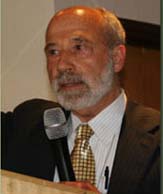
Women in Tourism: UNWTO will attend IIPT award ceremony during ITB Berlin
IIPT India In association with the UN World Tourism Organization (UNWTO) and ITB Berlin is conducting the first Global Peace Awards for Empowered Women in Tourism with the title “Celebrating Her.
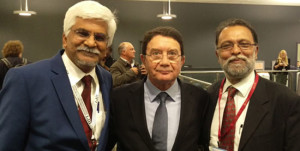 The event will be held on Friday, 11 Mar at ITB Berlin, Room New York 3, Hall 7.1a from 16:15 to 17:00. All are welcome.
The event will be held on Friday, 11 Mar at ITB Berlin, Room New York 3, Hall 7.1a from 16:15 to 17:00. All are welcome.
H.E. Alain St. Ange, Minister for Tourism and Culture, Government of Seychelles will be the Guest of Honour and Dr. Taleb Rifai, Secretary General of UNWTO will present the Awards. Ms. Anita Mendiratta – member Advisory Council IIPT India, will moderate the Awards Ceremony.

The IIPT India Global Awards, “Celebrating Her” are intended to acknowledge and celebrate exceptional women in the fields of travel, tourism and hospitality; individuals with a clarity of vision and mission who appreciate and believe that tourism, perhaps the biggest industry in the world, could become the first global peace industry and who have consistently worked towards fostering the tourism as a vehicle for peace.
The process of the Awards has been styled on the basis of the UNWTO’s mechanism of scouting for achievers across diverse activities who have in their unique way created innovative products and services that can be considered exemplary towards helping others whilst setting up and managing a business professionally and in line with the best international practices.
“Individuals who have demonstrated strong personal values and determination to make the difference are worthy of recognition and reward. They also need to be celebrated as role models for the younger generation to follow,” said Ajay Prakash, President of IIPT India
IIPT Founder and President, Louis D’Amore stated, “IIPT has been a believer and supporter of women empowerment since its founding in 1986 featuring models of empowered women leadership at each of our international summits and conferences beginning with H.E. Vigdis Finnbogadottir, then President of Iceland and the world’s first elected women Head of State, as Patron of the IIPT First Global Conference; featuring empowered women including Nobel Peace Laureate Wangari Maathai as keynote speakers; models of empowered women in concurrent sessions, particularly in the areas of community tourism and poverty reduction. IIPT is particularly proud of IIPT India’s initiative in presenting the First Global Peace Awards for Empowered Women in Tourism and is grateful for the support of ITB Berlin and the UN World Tourism Organization.”
The IIPT India awards “Celebrating Her” 2016 in partnership with ITB Berlin, UNWTO, WTTC, PATA, SKAL International, ICTP and MITM focus on women achievers across the Globe.

UNWTO activities at ITB Berlin 2016 to focus on the Silk Road and Child Protection
O n the 50th anniversary of ITB Berlin, UNWTO’s activities at the fair will focus on the development of the Silk Road and the World Tourism Network on Child Protection. ITB will take place on 9-13 March.
n the 50th anniversary of ITB Berlin, UNWTO’s activities at the fair will focus on the development of the Silk Road and the World Tourism Network on Child Protection. ITB will take place on 9-13 March.
One of the major events organized by UNWTO at ITB Berlin will be the 6th UNWTO Silk Road Ministers’ Meeting (9 March). The meeting brings together Ministers and high ranking officials from over 20 countries to discuss how public/private sector partnerships (PPPs) can contribute to advancing tourism on the Silk Road. The meeting will focus on the valuable role of PPPs in marketing and promotion, infrastructure development, heritage management, aviation, major events and risk and crisis management. On the occasion, UNWTO will launch the Silk Road Action Plan 2016/2017. In addition, the 5th UNWTO Silk Road Tour Operators’ Forum (10 March) will take place as a means to empower inbound Silk Road tour operators to better understand, engage and work with the international travel trade.
UNWTO will also hold the 31st Meeting of the World Tourism Network on Child Protection (10 March), an initiative to prevent all forms of child and youth exploitation in the tourism sector. Under the chairmanship of Carol Bellamy, the Chair of the Network and former Executive Director of UNICEF, the meeting will focus on Responsible Business Strategies and Child Protection in Tourism,’ highlighting the good practices championed by the tourism industry. The event will feature interventions from ABTA, TUI Group, as well as the Chair of the High Level Global Task Force to End Sexual Exploitation of Children in Travel and Tourism Najat Maalla M’jid, who will share the results of the Global Study on the Sexual Exploitation of Children in Travel and Tourism.
Additionally, the UNWTO Secretary-General will be a keynote speaker at the ITB Ministers’ Roundtable: “Tourism in the 21st century: new business models in a digital world”, an event organized by the ITB Convention Programme in collaboration with UNWTO. The theme of this year’s roundtable will be the ‘Digitalization of economy and society’.
ITB 2016 will also be the stage for the launch of two UNWTO Affiliate Members Reports – the ‘Global Report on The Transformative Power of Tourism’ focusing on the role of socially and environmentally responsible practices in the sector, produced by UNWTO and the Institute for Tourism of Croatia; and the ‘Global Report on The Power of Youth Travel’, now in its second edition, developed incooperation with the World Youth Student and Educational Travel Confederation (WYSETC).
Finally, UNWTO has partnered with the International Trade Centre (ITC) to promote the Kayah State of Myanmar during ITB Berlin. Since 2014, ITC has been working with the Government of Myanmar on an inclusive tourism project aimed at supporting the local tourism sector through the development of cultural and eco-tourism products. UNWTO joins ITC and Myanmar to showcase the multiple benefits arising from this project by co-organizing a series of events throughout the fair including a press conference, a seminar and a number of business to business events.
